At the closing of the last decade, I reviewed the intellectual progress I had in 2010s. Then I reflected upon the year 2020 by writing 20 lessons I learned in that year. Such reflections haven’t been part of any process – I’ve simply enjoyed taking a pause and doing stock of where my time went. Since time is the only limited resource we have, as I’m aging, I’m realizing that being conscious of how it’s getting spent is extremely important. In fact, such reflections are a fantastic way to nudge your future into a direction that you intentionally choose (v/s reacting to circumstances and drifting from year to year).
So, in the spirit of meditating on time, I’m recapping how my 2021 went in this post.
Tip: if you like going through my retrospective, I highly recommend doing your own as well. You may choose to not publish your reflections, but the benefit you’ll get from taking a day out to recap your last 365 days is unmatchable.
Outline
Books I read in 2021
I read a total of 28 books this year. While writing this essay, made a thread recapping all of them.
Even though I never plan ahead what books to read, a few themes clearly emerged retrospectively. Most of my reading revolved around fundamental physics, hidden biological worlds, and consciousness/mind.
My top 3 picks for the year
- Inner Presence (book on consciousness)
- Listen to my podcast with the author on the book
- The Entangled Life (book on fungi)
- The Mind is Flat (book on mind)
- Listen to my podcast with the author on the book (or read my notes)
What I wrote in 2021
On my blog, I wrote a total of 41 posts in 2021. Most of them were chapters of the book I’m writing in public: mental models for startup founders.
According to Google Analytics, in 2021, my website invertedpassion.com saw 200k pageviews across 60k users. This is a ~100% increase over 2020, which is a pleasant surprise.
The top 5 posts of the last year
According to the number of pageviews, these were the most popular essays:
- How money works (2021)
- Most surgeries are ineffective (2021)
- Be in the desires market, not the solutions market (2020)
- Habits prevent people from switching from the familiar to the new (2021)
- Professional success and personal success: two independent dimensions (2011)
The last one is surprising because it is a ten-year-old essay and still gets a ton of traffic from search engines.
Adopted a daily writing ritual
Midway in the year, I discovered the note-making method called Zettelkasten. This led me to a rabbit-hole of effective note-making. The most useful resource for that was Andy’s Evergreen Notes. I started using Obsidian for making notes and gradually evolved a daily writing ritual which culminated in an explosion in my writing output.
These days I’m writing about 1500 words almost daily. Some of them go on this blog (like this essay), while most others remain as notes. Every once in a while, I publish such unpolished notes in my knowledge garden.
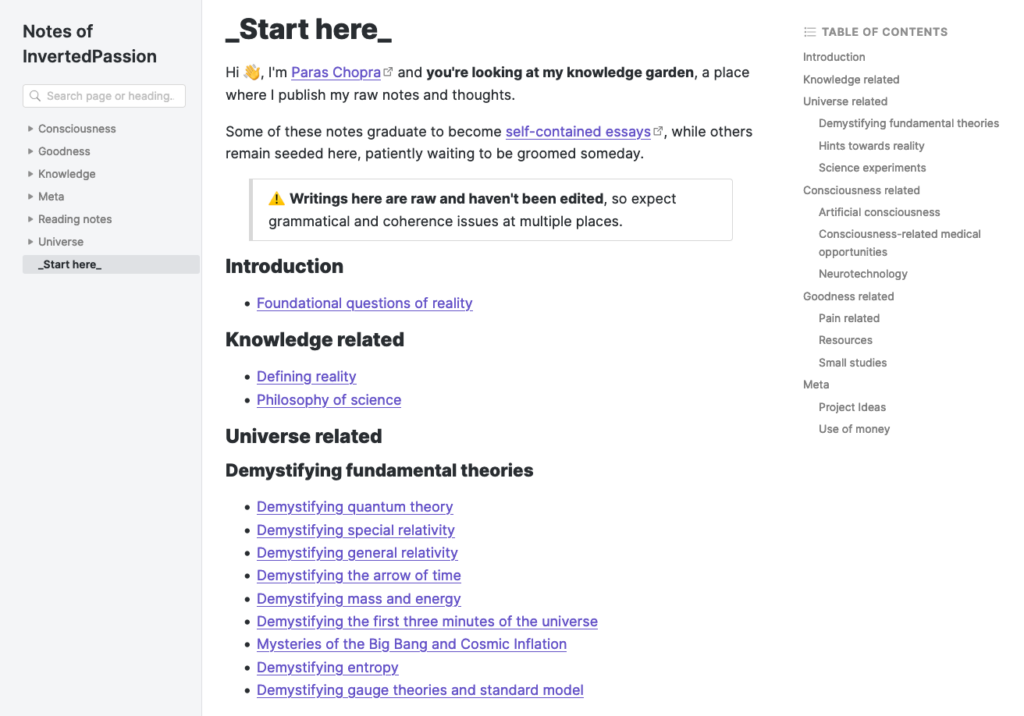
I started my daily note-taking regimen in July and have ~100 notes in my Obsidian so far. I now try making notes about everything – papers, lectures, books, ideas, thoughts. Very happy to have discovered such a simple way of making notes and publishing them online.
My favorite set of notes in 2021 was the demystifying fundamental theories series where I tried to digest and develop intuition about the fundamental physics of our universe. (By the way, I also discovered you could hire a practicing scientist on a per-hour basis via websites like this one. I did that to ensure my science-related notes don’t contain any factual or conceptual errors).
What I tweeted in 2021
I tweeted about 450 tweets/month for a total of 5400 tweets in the entire year.
I increased my activity on Twitter last year primarily because I’ve enjoyed interacting with people there. I’ve been on Twitter since 2008 but the last year is the period where I gained the most number of followers.
My follower count went from ~30k at the start of the year to ~90k by the end of it.
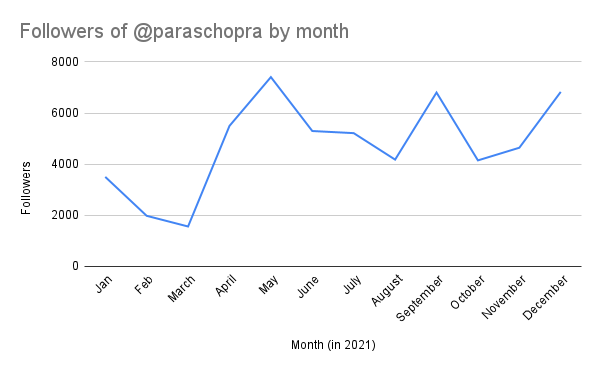
Tweets that went viral
Also, last year I hit a personal milestone of 250+ twitter threads. Looking at the analytics that twitter so graciously provides, here are the top threads/tweets:
- How money works (1300 retweets)
- A short thread on Venture Capital (144 retweets)
- Crypto is the future of our society (198 retweets)
- What a good startup pitch contains (421 retweets)
- What inflation does to savings (696 retweets)
- What’s the cheapest way to improve one’s quality of life? (466 replies)
- What startup / product should very obviously exist but doesn’t? (165 replies)
- Learning physics is like going over the source code of the universe. (319 retweets)
- What’s a really good online course (on any subject) that you’ve attended? (144 replies)
- You know you’re a generalist when.. (484 retweets)
A fun Twitter-related thing happened in December: one of my tweets got printed on billboards across Bangalore.
My personal growth in 2021
Wrote down my moral code
I’ve been inspired by negative utilitarianism‘s motto of prioritizing suffering over increasing happiness. My podcast with David Pearce further nailed the idea into my worldview.
I think the key moment in my personal growth was writing and publishing my moral code. The act of thinking through how will I prioritize my actions in different morally difficult situations helped me be more intentional about my life.
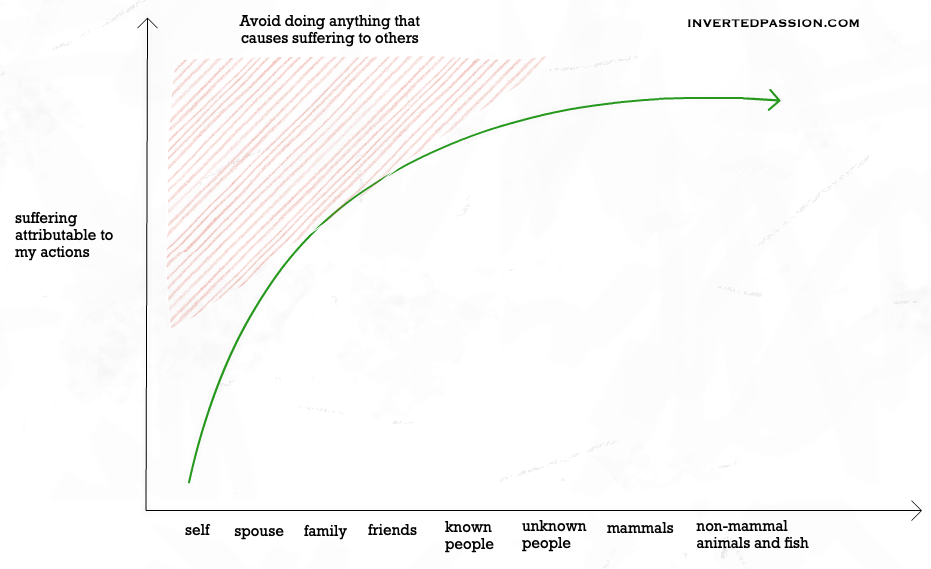
I was born and raised a non-vegetarian but had quit eating meat a few years ago. In 2021, after writing my moral code, I started thinking about how I can reduce suffering in the world through my personal life choices. So, when I discovered how eating eggs probably causes more suffering than eating beef, I quit eating eggs too. (Even though milk causes the least suffering amongst all animal products, I intend to quit that too.)
Shifted cities
After spending about 6 years in Pune, I along with my wife shifted to a new city: Bengaluru. There was no professional reason for doing this. My company (Wingify) is all-remote, so I could have chosen to stay in Pune. But I felt a bit stagnated in terms of my exposure to interesting people and ideas.
Bengaluru has India’s top science university (IISc) and is an attractor for ambitious people in the startup/tech industry. It has been a few weeks here, but I’ve already met tens of people who could become lifelong friends or collaborators.
Got my hands (physically) dirty
Sitting in front of the screen for the entire day isn’t fun. So, I tried doing a few projects that required getting my hands dirty:
Grew edible mushrooms from their spores.
After reading Entangled Life, I had to grow mushrooms. But it was more difficult than I anticipated. The risk of contamination is surprisingly high. So, had to use a pressure cooker for sterilization and inoculate jars with a growth medium in clean conditions.
Made my own wine at home
Following a simple recipe, I fermented different kinds of fruit juices to make wine. The wine turned out to be tasty. The highlight was a friend (who doesn’t drink much) gulp a couple of glasses and finally get drunk by the end of it.
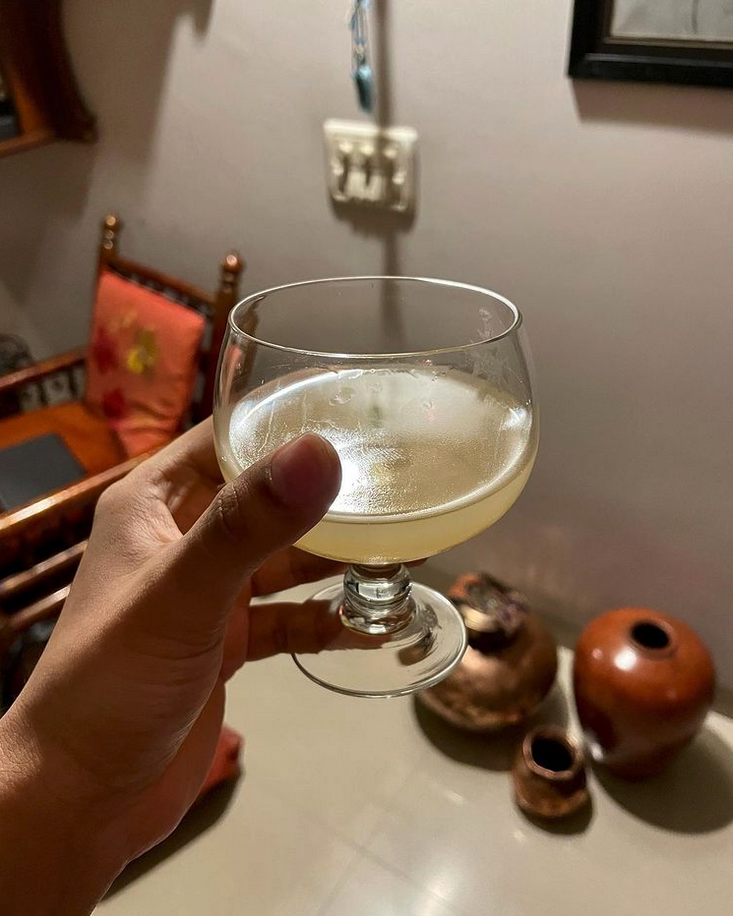
Experimented with tons of alternative-milk recipes
Last year, I bought a high-speed blender and decided to make my own milk. My primary objective was to match the taste of regular cow milk so that I can start using it in my daily chai (milk tea). My secondary objective was to make sure it contains an equivalent % of protein as regular milk. In short, I wanted to nail taste and nutrition in plant-based milk.
I tried making milk from oats, cashews, and pea protein. Some of the recipes turned out to be pretty decent.
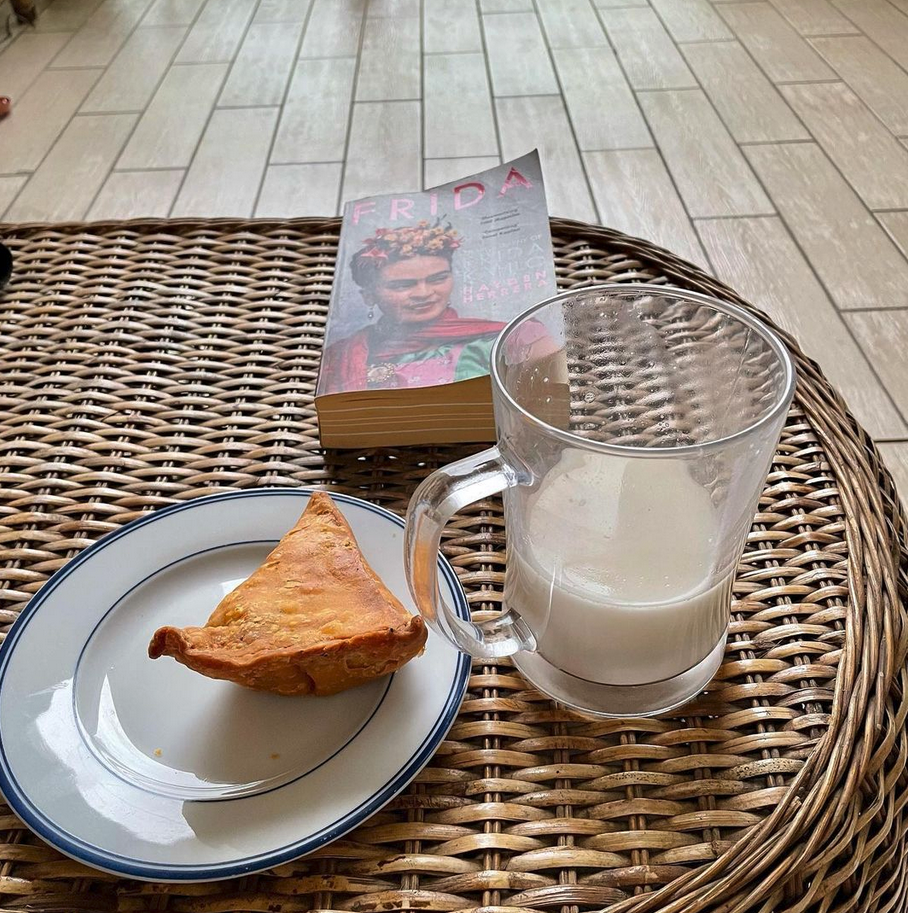
Unfortunately, I haven’t been able to adopt any of the milks for my daily chai so far. They come close but something or the other throws the flavor profile. I’ll try this year to replace regular milk with something else for my chai.
Measured the speed of light using chocolate
I wanted to “see” particles streaming from the heavens. For doing that, a cloud chamber could be built easily at home. This enables you to see streaks left by particles such as muons, positrons, protons, electrons, etc.
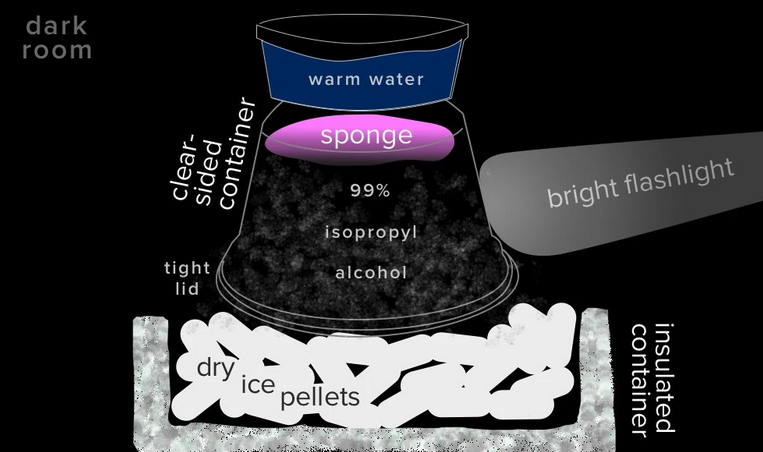
Unfortunately, I wasn’t able to get this to work. I’m still not sure why this didn’t work but I’ll perhaps try doing it again this year.
Finished two online courses
- Medical neuroscience on Coursera
- Difficult course because it’s full of anatomical names and descriptions. But very enriching. After finishing the course, I feel much more confident while reading neuroscience papers.
- Astrophysics: Cosmology on edX
- A Nobel laureate is one of the two educators on this course. Excellent course that goes over the basics of cosmology in a much more rigorous manner than most pop-science books.
Continued daily yoga and meditation
I started dabbling with meditation and physical exercise in 2019 (I think). Before that, I was 72 kgs and somewhat unfit. Thankfully, by now taking care of my mental and physical health has become a daily priority. Throughout 2021, every day, either I lifted weights or did yoga. That was followed by a 15-minute silent meditation session.
I also inculcated a habit of weighing myself daily. If I’m over my target weight (which is 62 for a BMI of 22), I reduce my food intake for the day. All these habits helped me feel fit throughout the year.
Started doing philanthropy
In 2021, I started doing philanthropy for the first time in my life. This happened via two projects:
- Escape Velocity Grants
- Kickstarted no-strings-attached grants to people under 25 years of age for whom Rs 50,000 can change their life’s trajectory. The first grant happened in July 2021 and so far we’ve given grants to 27 people. Very satisfied by the prospect of impacting so many people’s lives at such a small cost to myself. The best part is that out of 27 grants that we’ve given, 19 have been sponsored by other people (all of whom twitter-friends who I’ve never met personally)
- Wingify Book Club
- As part of my company’s CSR, I kickstarted an online book club where we distribute free non-fiction books to students who can’t afford them. So far, we’ve given out 800 copies of five books in 2021. These books are Atomic Habits, Factfulness, The Moment of Lift, Tools of Titan and The Brief History of Time. What makes me happy about the project is that these books are something schools or colleges would never recommend as part of the syllabus.
Discovered angel investment is not my cup of tea
I’m convinced that investing in a portfolio of early-stage startups would give higher economic returns than public market equity. So I tried to build my portfolio of angel investments. But pretty soon, I realized I did not enjoy spending time evaluating startup pitches. Going through even the simplest decks takes a good chunk of time daily and, for me, the promise of additional economic return isn’t enough motivation to do that (v/s say read an article or learn something new).
After a few weeks of going through decks, I gave up on being an active angel investor. These days, I’m happy throwing my money into an index fund or giving it to a professional early-stage investment fund. I do back bright entrepreneurs who’re doing something extremely hard technically or scientifically. But that I do to support smart and ambitious people make a positive difference in the world, and hence have no expectation of any economic return.
Things I created in 2021
Search engine
In 2020, I had discovered GPT3 and had started wondering about using it to build a new search engine.
The idea was to build a search engine where you could type any question and it not only would answer the question directly but will also nudge you to ask follow-up questions. Such an interactive QnA engine would be perfect for learning – it’ll be like a personalized teacher who never gets bored of your questions.
Unfortunately, OpenAI’s pricing and policy meant we couldn’t build an open-ended search engine on top of GPT-3. In 2020, had the idea to use Reddit’s discussion to power this QnA search engine.
By the end of 2020, launched reddit-based search engine. It was called Kroomsa: search engine for the curious.
We did launch it but never got around to promoting it. I switched my searches default to Kroomsa but realized I had to continue switching to Google for many queries (like doctors around me). Gradually realized that it will have a niche audience and without a comprehensive Google-like index, building a new search engine is going to be difficult. So, we shut it down.
However, the silver lining is that we are open-sourcing it. Keep an eye on my twitter to know when we release its code.
Podcast
In late 2020, I decided to start a podcast to accelerate my knowledge acquisition. I already was reading books by professors and scientists, so I imagined it’ll be incredibly fruitful to be able to interview them and ask them questions!
I decided to call my podcast Bold Conjectures because I’m interested in what knowledge do leading thinkers think is still unsettled. My goal was to do one podcast per week but ultimately was able to do and publish 26 episodes (which I think is still pretty good).
I now have about 3500 subscribers on the youtube channel of Bold Conjectures. And according to the number of views, my most popular podcast was the following:
Alt-protein brand
Inspired by my moral code, I explored different ways to reduce suffering. Getting rid of animal products is obviously the biggest leverage we have to reduce net suffering in the world. Towards that, I explored whether a new alt-protein food brand in India would make sense.
In this process, I tried all the vegan meat products available in India. Explored food manufacturing processes and industry. Studied science and economics of the three main alternatives to animal protein: plant-based, lab-grown, and fungi-based. After doing all that, decided to start with the easiest category among different animal-based products: milk. Towards that, experimented with my own recipes and contacted a few contract manufacturers for production. Even registered a domain name (ageofbotany.com).
But just before pulling the trigger on production, realized that the final price of such milk would be 3-4x of cow-milk. At such a high price differential, this milk will only attract an extremely niche market and hence not make a dent in reducing animal suffering (which was my original motivation).
In fact, the more I thought about what causes people to switch away from animal proteins, the more I got demotivated.
Consider the following facts:
- Most people adopt a plant-based diet for health reasons, and not due to ethical considerations
- This means that the moment they discover a new fad-diet, they’re back to consuming animal products.
- Right now, with brands like Beyond Meat and Impossible Foods, plant based meat is seeing an uptake. But this adoption is driven by health considerations, which means just like margarine, the adoption can reverse if people start fearing them as unhealthy.
- The % of strict vegans in western populations has remained a constant 1% for the last few decades
- Even with such noise about veganism, growth in number of strict vegans is surprisingly low because food is such an integral part of life.
- You have to be extremely motivated by ethical considerations to give up all animal products. Most people simply aren’t that.
- The low-cost of animal products is subsidized by goverments
- Something as simple as lower tax on milk than alt-milks can make it hard for alt-protein brands to compete.
- Animals have been optimized by evolution for food production and alt-protein techniques are engineered
- When you’re competing against beef, chicken, eggs or milk, you’re really competing against the free R&D done by evolution over millions of years. Similarly, these efficient food producing machines are effectively free because these animals have no rights and are exploited. But R&D and production process for alt-proteins costs money. So, competing against animal proteins in nutrition, taste and cost is close to impossible.
All these considerations made me abandon the project. I’m disappointed that I didn’t continue but I wasn’t interested in making a marginal impact. Many alt-protein brands exist in India and the world and unless I had something radically better, there was no point in jumping in the well and playing a me-too game.
A new type of cryptocurrency
Last year, I stumbled upon an AI-art project which generated art for any given caption. At first, I played around with it manually and generated a few images.
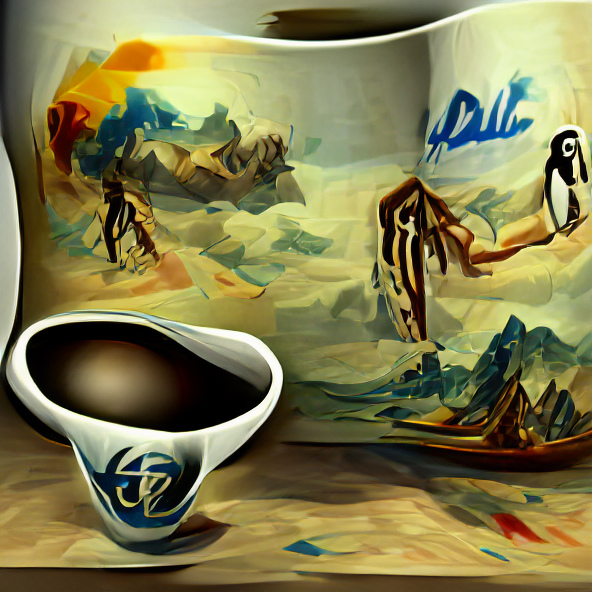
Given a caption, generating these images is computationally expensive. It immediately struck me that perhaps this can replace proof-of-work algorithms in blockchains that are required to be computationally expensive but, unlike these beautiful images, produce no beneficial output. For blockchains, wasting computational energy is the entire point. I wondered what if we could achieve the same objectives but actually produce pieces of art.
So, I began prototyping. The design of the blockchain was simple and using I also ended up getting a prototype to work. In the process, since I had to modify the code of an actual working blockchain, I learned ins-and-outs of blockchains and cryptocurrencies.
Ultimately, I realized that even though this was a fun project and will likely attract a core audience, it wasn’t aligned with my moral code. The limited time I have in my life shouldn’t be spent developing a largely zero-sum game of cryptocurrencies.
If anyone is interested in reading more about the project or taking it forward, I’ve made the initial document public. I had also registered deepstamp.org for hosting the project and will be happy to donate it if anyone actually ends up developing this or something similar.
What about Wingify?
None of what I wrote above would have been possible if my company didn’t have a capable leadership team led by my co-founder. As a chairman, I don’t get involved in day to day operations and that is what enables me to explore all the non-money-making curiosities. At Wingify, I have the privilege to choose my own projects and those are often the ones that require giving feedback and guidance instead of owning execution.
At this point of Wingify’s maturity, our growth strategy is clear and we have a team capable of executing the plan. This clarity has enabled the company to post incredible revenue and profit growth in 2021. In fact, the last year has been the best year the company has had in the last 5 years and I’m very happy with its trajectory into the future.
Join 150k+ followers
Follow @paraschopra